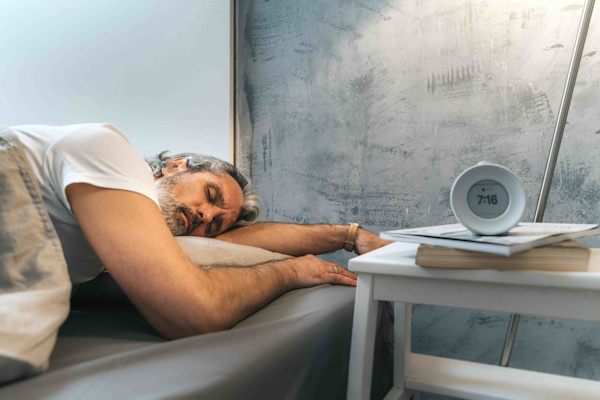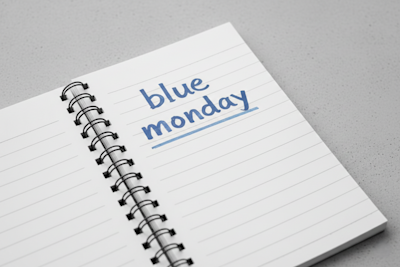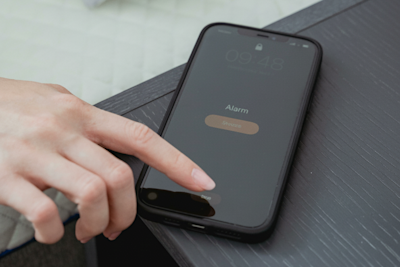
How to Sleep Better as You Get Older
The Science of Sleep and Aging
Sleep. Yes, it’s something we all need, however, have you noticed that, as we get older, it often feels like a luxury rather than a guarantee. You might have sailed through your younger years with little thought about bedtime, but now, falling asleep (and also staying asleep)can feel like an uphill battle. It makes it feel like those nights when you'd drift off the moment your head hit the pillow feel like distant memories.
Here’s a fun fact: Total sleep time decreases by about 27 minutes per decade from mid-life.
So, no, you’re not imagining it. Sleep does change with age, but that doesn’t mean restful nights are a thing of the past. It just means you need to make a few changes to improve your sleep hygiene.
That’s right! With a few mindful shifts, you can create the perfect conditions for deep, restorative sleep, at any stage of life.
Why Sleep Changes as We Age
If you find yourself waking up at odd hours or struggling to fall into a deep sleep, you’re not alone. Research suggests that up to half of adults over 65 experience sleep disturbances.
Let’s take a look at why this happens:
Circadian Rhythms Shift – Your internal clock naturally changes, often making you feel sleepy earlier in the evening and wake up earlier in the morning. As you age, the internal body clock weakens, leading to desynchronized sleep-wake cycles. Additionally, melatonin secretion declines, contributing to reduced sleep efficiency.
Lighter Sleep, More Awakenings – With age, deep sleep and REM sleep decrease, while light sleep increases, this means adults experience more fragmented and lighter sleep with increased nighttime awakenings.
Health & Medications Play a Role – Chronic conditions like arthritis, diabetes, heart disease, or even restless legs syndrome can disrupt sleep. Certain medications also have side effects that interfere with rest. Especially polypharmacy (the use of multiple medications) are major contributors to sleep disturbances in older adults.
Lifestyle Habits Matter More – A lack of movement, too much screen time, or inconsistent bedtimes can make sleep problems worse. As we get older, our schedules become less rigid and it's so easy to fall into bad habits. We may stay up late watching TV or scrolling on our phones, which can make it harder to fall asleep when we finally do go to bed. Plus, if we don't get enough exercise during the day, our bodies won't be tired enough at night.
The good news? Sleep is still within your control. A few mindful habits can transform your nights from restless to restful.
Mudita Harmony
Simple, Mindful Habits for Better Sleep
1. Keep a Consistent Sleep Schedule
Your body thrives on routine. Going to bed and waking up at the same time every day, (yes, that means even on weekends & holidays) helps regulate your internal clock. Irregular sleep schedules weaken circadian rhythms, leading to difficulty falling asleep staying asleep, as well as increased daytime napping, which further disrupts nighttime sleep.
If you find yourself napping during the day, keep it short (20–30 minutes) to avoid interfering with nighttime sleep.
You can check out our tips on the perfect power nap in article on our blog: Nap like a PRO: The Secret of the POWER NAP
PLUS: staying up later than your natural sleep window can cause sleep deprivation and daytime fatigue, so a consistent sleep schedule is really KEY.
2. Create a Relaxing Evening Ritual
Think of bedtime as a transition, not an abrupt switch-off. Engage in calming activities like reading, meditation, or listening to gentle music.
A warm cup of herbal tea, dim lighting, or even a few deep breaths can signal to your body that it’s time to rest.
3. Make Your Bedroom a Sleep Sanctuary
Your sleep environment matters more than you think. Keep your bedroom cool, dark, and quiet.
Blackout curtains, a device which can play colors of noise, like Mudita Harmony (to block out any unwanted sounds), or even an essential oil diffuser with lavender can create a more relaxing atmosphere.
4. Limit Caffeine and Alcohol in the Evening
A morning coffee? Absolutely. A late-afternoon espresso? Maybe not. Caffeine can linger in your system for hours, so try cutting it off after lunch.
Alcohol might make you sleepy at first, but it disrupts deep sleep later in the night.
5. Move Your Body, But Not Too Late
Lack of movement leads to sleep fragmentation and excessive daytime sleepiness. That’s why sleep experts say that exercise can improve sleep quality, however the timing matters. Try to fit in movement earlier in the day. Yoga, walking, or stretching are great options that support both physical and mental well-being.
6. Power Down Your Screens
Blue light from phones, tablets, and TVs can interfere with melatonin production, the hormone that signals your body to sleep. Try switching to an offline evening routine and consider activities like reading a book, journaling, or using a screen-free alarm clock like Mudita Harmony to wind down naturally.
You can also use evening bright light therapy if you’re experiencing early sleep phase shifts.
7. Eat Smart for Better Sleep
Heavy meals and salty snacks can lead to indigestion and wake you up at night. Instead, opt for sleep-friendly foods like tart cherries, pistachios, and kiwifruit.
A small, balanced snack before bed can also help regulate blood sugar levels.
8. Manage Stress and Anxious Thoughts
A restless mind often leads to a restless night. Try meditation, mindful breathing exercises, or gratitude journaling before bed to release lingering stress. In fact, 40%-50% of seniors report insomnia, which is often linked to depression, anxiety, or medical conditions.
If your thoughts tend to race, a simple brain dump onto paper can help clear your mind.
Check out our article on mindful journaling and see how it can positively impact your mental health.
READ: The Benefits of Mindful Journaling
When to Seek Help
If you’ve made lifestyle changes and still find yourself struggling with sleep, it might be time to check in with a healthcare professional, especially if you experience:
Loud snoring, gasping for air, or pauses in breathing (signs of sleep apnea)
Restless legs or discomfort in the evening that prevents you from falling asleep
Frequent nighttime bathroom visits disrupting your sleep cycle
Feeling excessively sleepy during the day despite a full night in bed
Your sleep is worth prioritizing, and sometimes, a doctor’s insight can help uncover underlying issues.
Embrace Rest, Embrace Life
Sleep changes with aging may seem quite complex, but fortunately, they are treatable. And yes, aging is a natural process that affects everyone differently. However, better sleep isn’t just about feeling well-rested, it’s more about living well.
When you sleep better, you really feel it. You can think more clearly, feel more energized, and approach life with greater ease.
Small, intentional changes can have a big impact, helping you reclaim the deep rest your body and mind deserve.
Tonight, why not start with something simple? Power down a little earlier, take a deep breath, and let sleep come naturally. Your body will thank you.
Sweet dreams. 🌙
Related stories

What is Blue Monday & How to Deal with Seasonal Blues
Feeling the winter blues? Discover how to overcome seasonal sadness with mindfulness, better sleep, limited screen time, and meaningful connections.

Why Smartphone Alarms May Be Ruining Your Sleep
Find out why smartphone alarms may harm your sleep and explore healthier alternatives like mindful alarm clocks, sunrise lights, and gentle sounds.

Why Boredom Is Good for Your Creativity & Mental Health
Boredom isn’t the enemy. It’s a path to creativity, meaning, and better mental health. Learn why unplugging from your phone can unlock a more fulfilling life.
If you'd like to receive the best stories from our blog, keep up to date with our progress and get notified about our product releases and special discounts.